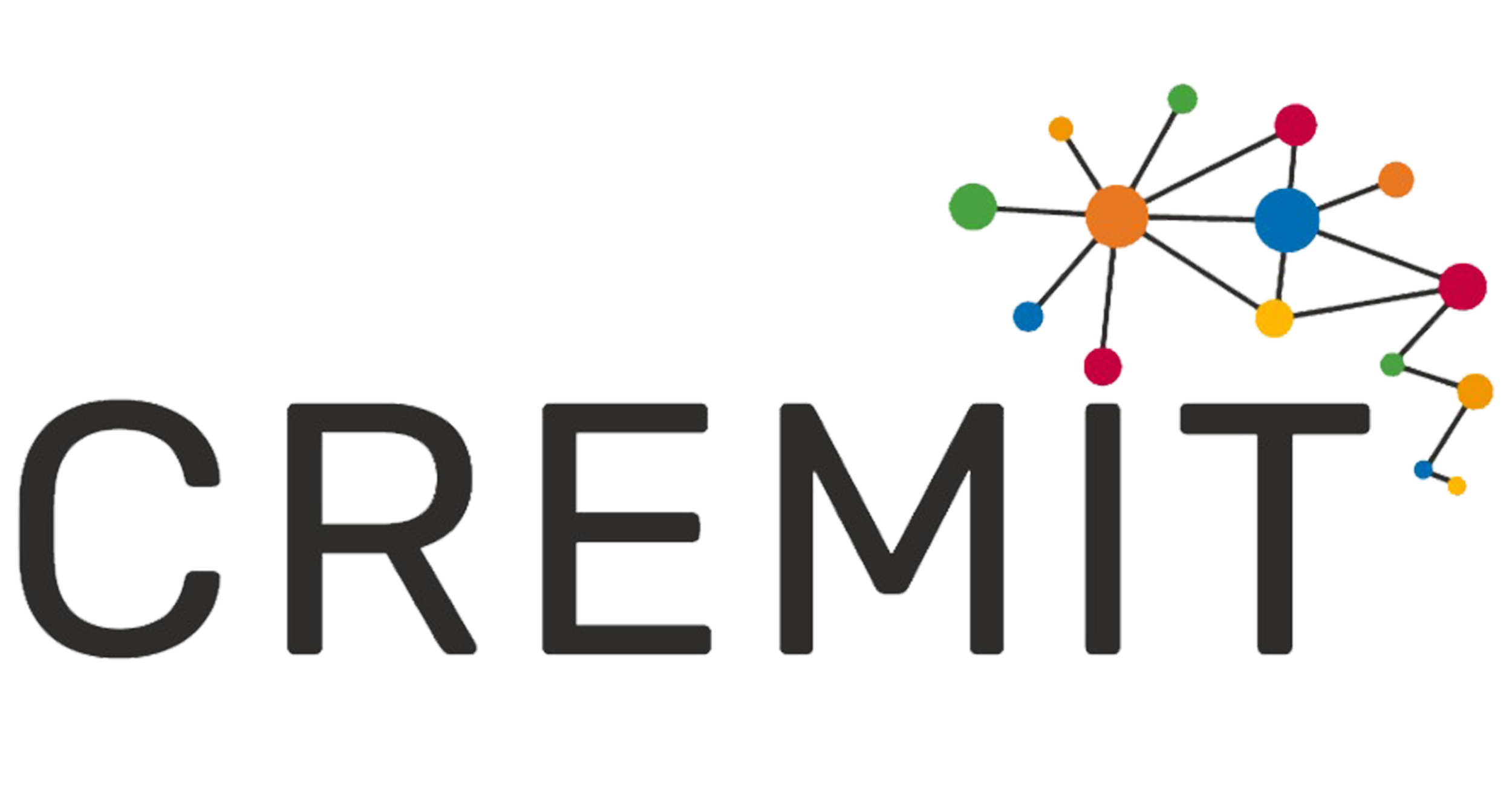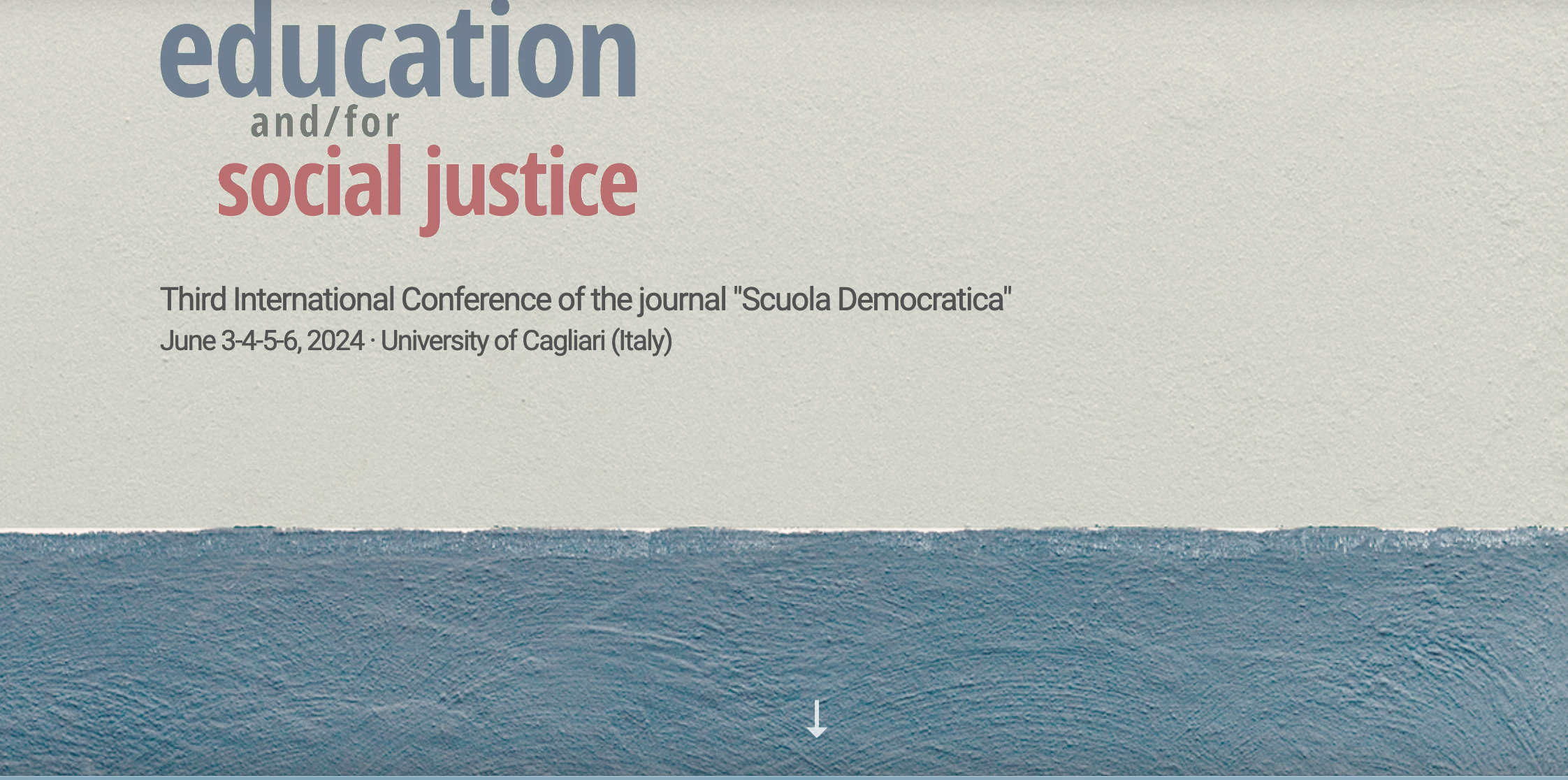Dal 3 al 6 giugno 2024 presso l’Università di Cagliari si svolge la III edizione della III edizione della Conferenza Internazionale della rivista “Scuola Democratica”. Il tema di quest’anno sono i bisogni e le prospettive di education and/for social justice.
Il Cremit è presente con due interventi di Stefano Pasta e Michele Marangi dedicati al contrasto della povertà educativa digitale e agli sguardi di Interculture Postdigitali.
Qui di seguito gli abstract e il programma della conferenza.
Panel G.02.a: Being well at school: Equity between well-being orientation and student-centred pedagogy – 4 giugno ore 9 – Convenors: Anna Granata (University of Milan-Bicocca, Italy); Valerio Ferrero (University of Turin, Italy)
The Children of Mixed Couples in the Postdigital Age: When Digital and Intercultural Competences Come Together
Stefano Pasta, Michele Marangi
This study is situated within the Postdigital Intercultures, that is a field of research in which the challenge of living together, education for citizenship, and social relations both among individuals and of individuals with societies and their structures, are studied in relation to the everyday intertwining of socio-cultural heterogeneity/complexity and a plurality of languages and environments that are connected to postdigital transformations (Pasta, Zoletto, 2023; Jandric et al., 2023).
Beginning with the concept of “digital educational poverty” (Marangi, Rivoltella, Pasta, 2022; 2023), the study reflects on digital skills and differences based on socioeconomic factors using the Depend tool (Digital Educational Poverty in Educative Networking and Development). This tool was developed by the Research Center on Media, Innovation and Technology Education (Cremit) of the Catholic University and tested in the Digital Connections project (2021-2024), involving 99 schools integrating the fight against digital educational poverty into the civic education curriculum for the second and third year of middle school.
The concept of digital educational poverty results from the hybridization of two perspectives in defining digital competence (Pasta, Marangi, Rivoltella, 2021): the “rights” perspective (Digital Competences 2.1 and 2.2) and that of “New Literacies” (Rivoltella, 2020), which focuses on the dynamism and transdisciplinarity of competencies (Buckingham, 2020) and the concept of Dynamic Literacies (Potter, McDougall, 2017). Depend calculates the Digital Competence Score (PCD) with 12 indicators related to four learning dimensions: understanding (technical knowledge; rules; filtering data, information, and digital content), being (digital creativity; narrative skills; protecting digital identity), living together (netiquette and cyberstupidity; algorithmic logics; collaborative knowledge), and for an autonomous and active life (citizenship: using the web for good causes; sharing information; critical thinking).
Through the survey of the Digital Competence Score (PCD) submitted to 6,415 respondents in 2022-23, it emerges that the results of children of mixed couples surpass those of children with both parents born abroad and those with both parents born in Italy. From this perspective, the article focuses on the children of mixed couples, providing a socio-cultural snapshot with attention to technological uses, and theorizes the elements of mutual enrichment between digital and intercultural competences (Granata, 2011; 2015).
Dynamism, the need for contextualization, and the collective component are the three elements that, within the framework of “Onlife Citizenship” (Pasta, Rivoltella, 2022), unite digital and intercultural competences, approached also, in the sense of Bourdieu’s cultural capital, by a declination that considers the variables that intervene to co-determine situations and strives not to apply linear and deterministic models for assessing competences.
K.04.a: Leadership and active student participation: Democratic citizenship, well-being and inclusion in the secondary school – 6 gugno ore 9 – Convenors: Giulia Gabriella Pastori (University of Milan-Bicocca, Italy); Guido Benvenuto (University of Rome ‘La Sapienza’)
Producing Media in Classrooms to Struggle Digital Educational Poverty: a Research in Lower Secondary Schools
Michele Marangi, Stefano Pasta
Since 2021, the Research Center on Media, Innovation and Technology Education (Cremit) of the Catholic University has proposed using the new construct of “digital educational poverty” (Pasta, Marangi, Rivoltella, 2021) to update and broaden the concept of “digital divide”. The phenomenon is therefore not only understood as the deprivation of devices and access to the Internet, but also refers to the failure to acquire digital skills, understood as new alphabets (Rivoltella, 2020) necessary in the postmedia society to analyze the production and use of different digital content by the “viewers” of the social Web (Pasta, 2021). In this perspective, the ability to design, create and disseminate media content and formats is central.
This strategy is the basis of the Digital Connections project (2021-2024), created by Save the Children together with the Cremit and Edi Onlus. The project, which involved 99 schools, over 6,000 students and 400 teachers, developed the fight against digital educational poverty in the civic education curriculum of the second and third year of lower secondary school, through the activation of 7 participatory newsrooms in the classrooms: two for digital writing, to create entries for Wikipedia and online petitions; two for the production of podcasts, to create a report and a review; two for the construction of digital storytelling, both video and visual and one for the development of social marketing strategies, aimed at disseminating online content to promote digital wisdom among peers.
In the first part of the contribution, the theoretical and methodological framework will be provided that has oriented the design and production of digital formats according to the logic of cultural convergence (Jenkins, 2006), digital plenitude (Bolter, 2020), multimodal semantics (Kress, 2010) and Peer&Media Education (Ottolini, Rivoltella, 2014; Rivoltella, 2021), in a logic of cross-media protagonism (Marangi, 2021).
In the second part of the contribution, the data referring to a selected sample of 100 products created in the classes will be presented, analyzed with the PRODACT (PROmote Digital Analysis and Competences in Transmedia) tool, created by the authors to evaluate the products according to different parameters.
The artefacts were analyzed using the indicators of the aesthetic, critical and ethical dimensions of digital competence, typical of New Literacy (Rivoltella, 2020) together with the references of DigComp 2.2 and the four areas of Digital Educational Poverty, in an integrated perspective which takes as background the concept of “Onlife Citizenship” (Pasta, Rivoltella, 2022)
The analysis shows that this type of productive practices not only implement digital skills in students, but also develop teaching and educational practices that combine formal and informal skills and facilitate participation and protagonism, even in complex or problematic socio-cultural contexts, according to the logic of third-party learning (Potter, McDougall, 2017) and in a perspective of digital citizenship that allows us to develop updated and expendable educational media skills (Buckingham, 2020) and to develop the ethical sense necessary to consciously inhabit the mediapolis (Silverstone, 2006).
Per approfondire:
Stefano Pasta, Michele Marangi, Pier Cesare Rivoltella (2021), “Digital Educational Poverty: A Survey and Some Questions about the Detection of a New Construct”, in Proceedings of the 2nd International Conference of the Journal Scuola Democratica “Reinventing Education, vol. 1, Citizenship, Work and The Global Age, pp. 697-710.








